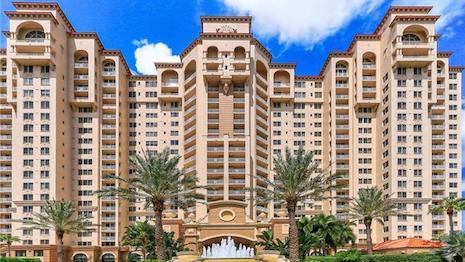- About
- Subscribe Now
- New York,
August 14, 2018

 Southwest Florida, including Naples, continues to be a desirable luxury real estate market. Image credit: Redfin
Southwest Florida, including Naples, continues to be a desirable luxury real estate market. Image credit: Redfin
Luxury housing prices grew in the second quarter of 2018, but at a slower rate than the first quarter of the year.
According to a new report by Redfin, luxury home prices rose more than 5 percent year-over-year to an average of $1.9 million in the second quarter of 2018, compared to more than 7 percent growth in the first quarter. A large number of buyers also cited tax reform as having an impact on their home purchasing decisions.
"We are already seeing the impact of tax reform on the luxury market," said Alina Ptaszynski, senior communications specialist at Redfin, Washington, D.C. "More people are leaving high-tax states like New York and California for states with lower local income and property taxes like Florida, Nevada and Washington."
Redfin surveyed more than 1,000 cities across the United States, and considers homes with sales prices within the top 5 percent as luxury.
Tax impact
The average sales price for luxury homes in the second quarter was $1.87 million, an increase of 5.2 percent from the second quarter of 2017. In Q1, the average sales price for luxury homes was $1.80 million, however, that represented a price growth of 7.3 percent.
While price growth may be slowing down, listing time is also down as homes continue to sell quickly.
Luxury homes in Oakland, CA sell in average of 17 days. Image credit: Redfin
Luxury homes were on the market for an average of 65 days in the second quarter, selling six days faster year-over-year. The fastest-moving luxury housing markets are in California, with homes in Oakland, San Jose and San Francisco finding buyers in less than 30 days.
Cities in Florida and the Western U.S. saw the biggest jumps in luxury home prices.
West Palm Beach, FL saw luxury price growth of 85.3 percent, followed by nearby Boynton Beach with a jump of 59.1 percent. On the West Coast, Seattle saw an increase of 27.5 percent for an average luxury sales price of $2.6 million.
The average luxury home in Seattle sold for $2.6 million. Image credit: Redfin
The tax reform bill passed by Congress in late 2017 seems to have impacted the country’s luxury real estate industry.
The Republican-approved tax plan lightened the tax load for many of the country’s wealthiest people while placing a heavier burden on poor Americans, potentially contributing to an upswing in luxury real estate purchases as the richest Americans will have even more money to play with (see story).
More than 36 percent of recent homebuyers surveyed said tax reform affected their home purchase decision, with 8 percent moving to a state with lower taxes and 10 percent buying a more expensive home because their after-tax income grew. Redfin did not receive a significant number of responses from luxury buyers in its survey of 1,300 homebuyers.
Competitive market
With the luxury housing market staying competitive, residential real estate companies must be aware of how to attract and retain customers.
According to a study by J.D. Power, more homebuyers and sellers than ever before are using digital channels to find inventory and agents. Consumer satisfaction is up overall, despite more consumers doing more research than in the past.
Today, 88 percent of buyers search for a new home before they begin working with an agent. About half of consumers — 47 percent of buyers and 55 percent of sellers — will use social media to find agents (see story).
Redfin's findings have been echoed by other real estate companies.
Realtor.com reported that as demand for luxury homes grows amid faster marketing times, the entry level for these homes has been pushed upwards. Forty-nine of the 91 counties surveyed have an entry point of at least $1 million.
Two-thirds of markets have seen real estate marketing time decrease. The combined median age of inventory in all of the luxury markets examined is down 9.3 percent year-over-year, from 119 to 108 days (see story).
This is also impacting inventory. The number of homes for sale priced at or above $2 million fell 7.3 percent in the second quarter of 2018 compared to a year earlier, according to Redfin.
"The data shows us that the shortage of high-end homes is easing slightly," Redfin's Ms. Ptaszynski said. "If that trend continues, we would expect luxury price growth to continue to slow."
Share your thoughts. Click here